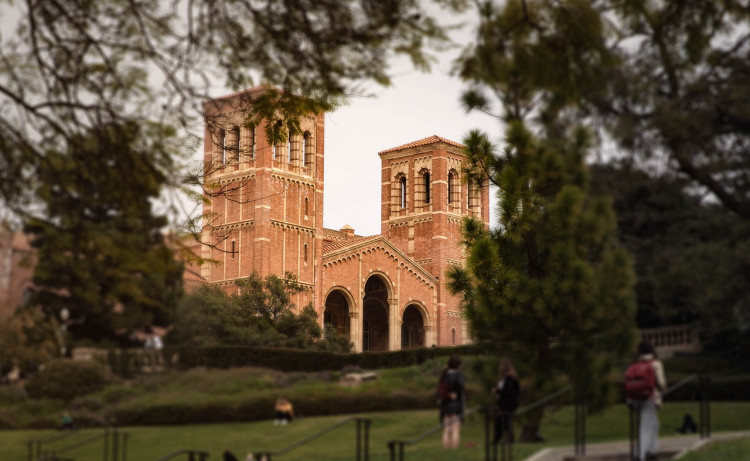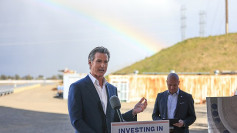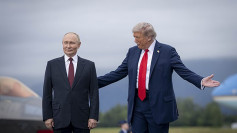Tensions boiled over at the University of California, Los Angeles (UCLA) on Sunday as pro-Israel and pro-Palestine protesters clashed, resulting in physical altercations and breaches of barriers erected by the university to separate the two groups. The skirmishes occurred as college demonstrations continue nationwide, with students occupying public spaces to protest the Biden administration's response to the Israel-Hamas war and urge their institutions to divest from Israeli interests.
According to the Daily Bruin, fights began between isolated members of the two groups before a counterprotest demonstration by the Israeli American Council. Thousands of protesters gathered at the center of UCLA's campus, backing both sides of the conflict. In the early morning, a small number of counterprotesters attempted to breach the barriers, followed by pro-Palestine protesters doing the same, leading to small skirmishes.
Mary Osako, UCLA vice chancellor and spokesperson, denounced the clashes in a statement, saying, "UCLA has a long history of being a place of peaceful protest, and we are heartbroken about the violence that broke out." Despite the altercations, the protests remained largely peaceful on Sunday, with no arrests reported.
The UCLA protests are part of a larger national movement that began last week at Columbia University, where over 100 people were arrested. Since then, hundreds of students have been arrested across the country as they emulate the encampment tactics used by Columbia students to call attention to the humanitarian crisis in Gaza. The protests have drawn the attention of politicians from both sides of the aisle, with Speaker Mike Johnson (R-La.), New York Gov. Kathy Hochul (D), and multiple members of Congress visiting the Columbia encampment.
The Biden administration has largely denounced the demonstrations as antisemitic, with GOP leaders, including Johnson, calling on the president to use the National Guard to quell the movements. However, Biden has declined to do so, and the protests have not yet led to a change in the administration's policy.
As the size of the pro-Palestinian encampment at UCLA expanded in recent days, counter-protesters have become increasingly vocal and visible on campus. The dueling demonstrations involved at least some people from outside the university, according to an earlier statement by UCLA, which said it had allowed two groups on campus to express their views.
Protesters are demanding a ceasefire in the war with Hamas, the divestment of university assets in companies involved with the Israeli military, and an end to U.S. military assistance to Israel. While student leaders have acknowledged isolated incidents of antisemitism and harassment, they blame outsiders who they say have sought to hijack their movement.
The nationwide protests have caught the attention of President Joe Biden, with White House national security spokesman John Kirby stating on ABC News, "He respects that and as he has said many times, we certainly respect the right of peaceful protest. People should have the ability to air their views and to share their perspectives publicly, but it has to be peaceful." At the same time, Kirby emphasized that the president condemns antisemitism and hate speech.
The protests have also impacted other universities, such as the University of Southern California (USC), where the administration canceled the main commencement ceremony after a decision to call off the valedictorian speech by a Muslim student who claimed she was being silenced by anti-Palestinian hatred. Los Angeles Mayor Karen Bass supported USC's decision, stating that the university "just did not feel that it was going to be safe" with 65,000 people expected to attend.






